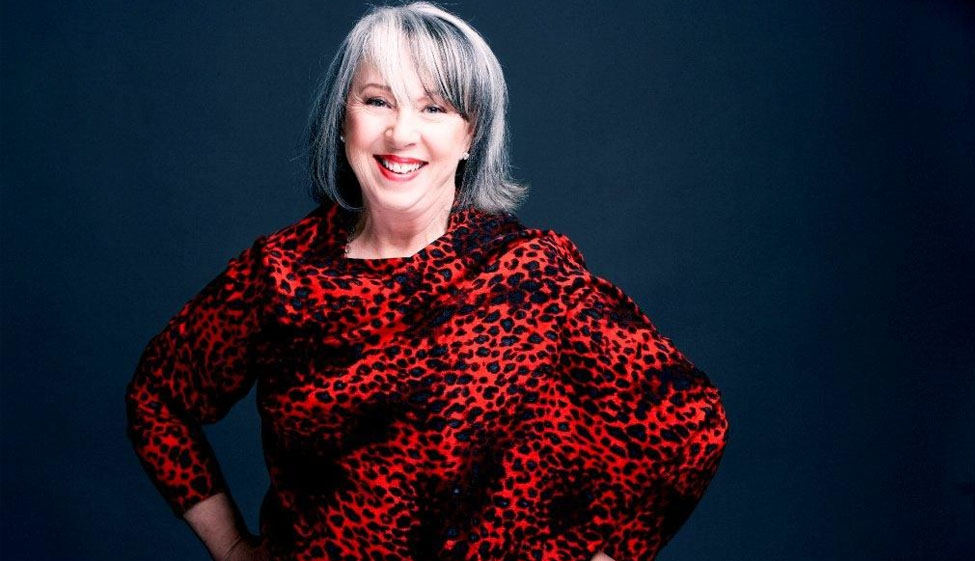
It’s come and it’s gone. Of course, I’m referring to the illustrious Booker Prize, often described as the world’s most important literary prize in the English language.
It’s changed a great deal in the last few years. A decision was taken to allow the Americans in and nothing’s been the same since. They wiped the literary floor, walking away with the Man Booker Prize for 2015 (Marlon James, A Brief History of Seven Killings), in an exhilarating display of literary virtuosity; 2016 went to Paul Beatty for The Sellout and to the despair of just about every book store customer in the home counties, George Saunders dazzled and puzzled in equal doses with his majestic Lincoln in the Bardo, peopled not only by Abraham Lincoln and his son but by 67 ghosts who all wanted their say in some of the language’s briefest half sentences).
By the time the 2018 longlist was published, there were dark, despairing rumours that the all-English novel was dead and it was time to take the one-time colony back. After the inexplicable exclusion of Colson Whitehead’s The Underground Railroad from the 2017 list, pulses reached dangerous levels when the 2018 shortlist was announced a couple of months back and beady eyes settled on another book about slavery and the triumph of the human spirit against all odds in the form of Washington Black by Esi Edugyan.
It wasn’t the only US book on the list (it is a mere technicality describing Washington Black as Canadian). Adding to the agony over the possibility of losing the literary world’s Olympic gold medal was Rachel Kushner’s The Mars Room and Richard Powers’ The Overstory, all set across the pond and in dangerous proximity to the mother country’s two contestants, The Long Take by Robin Robertson, and Milkman by Anna Burns, a 56 year-old writer delighted by the success of her third novel.
I watched the award evening. As always, two book critics were giving their thoughts on all the books, evading any possibility of being accused of favouritism from a balcony looking down on the well behaved diners below. It was almost an anti-climax when the winner of the £50 000 Man Booker Prize was announced: Milkman by Anna Burns, who was so overwhelmed she forgot to smile at the Duchess of Cornwall and who looked as if she was going to choke. Obviously, we all are desperate to read her book and to carp until the 2019 longlist comes out. That’s the way it is.
So let’s start with a book that didn’t win the award, the much embellished trueish story of an 11-year-old slave, described by the Boston Globe as ‘Enthralling’.
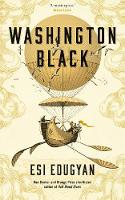 Why you’ll enjoy Washington Black: For Esi Edugyan, the story that became Washington Black emerged from The Tichborne trials. Roger Tichborne was shipwrecked off the South American coast in the 1850s and presumed dead. Ten years later a man claiming to be Roger Tichborne appeared in Australia. The late Roger’s mother sent a family slave, Andrew Bogle, who was black and who had been stolen from a Caribbean plantation, to see if the Australian man claiming to be her son was indeed so, Andrew became a main witness for the defence. Edugyan became interested in the lives of the young slave and the aristocratic Tichborne family’s missing son. Out of this matrix emerged Washington Black, the 11-year-old slave who was whisked out of servitude in the cane fields of Barbados to become the young slave of the aristocratic science mad second son of an aristocratic family. Enough is known about the book to know that Christopher Wilde found in in the young slave huge talent in scientific drawing, taught him to read and observe, and fled with him in his Cloud Cutter, heading for the Arctic, where his father had died. It is a delightful, sometimes harrowing read, packed with observations about the natural world of the 1800s, the search for scientific knowledge and well bred curiosity fanning the Cloud Cutter ever onward. Do read it.
Why you’ll enjoy Washington Black: For Esi Edugyan, the story that became Washington Black emerged from The Tichborne trials. Roger Tichborne was shipwrecked off the South American coast in the 1850s and presumed dead. Ten years later a man claiming to be Roger Tichborne appeared in Australia. The late Roger’s mother sent a family slave, Andrew Bogle, who was black and who had been stolen from a Caribbean plantation, to see if the Australian man claiming to be her son was indeed so, Andrew became a main witness for the defence. Edugyan became interested in the lives of the young slave and the aristocratic Tichborne family’s missing son. Out of this matrix emerged Washington Black, the 11-year-old slave who was whisked out of servitude in the cane fields of Barbados to become the young slave of the aristocratic science mad second son of an aristocratic family. Enough is known about the book to know that Christopher Wilde found in in the young slave huge talent in scientific drawing, taught him to read and observe, and fled with him in his Cloud Cutter, heading for the Arctic, where his father had died. It is a delightful, sometimes harrowing read, packed with observations about the natural world of the 1800s, the search for scientific knowledge and well bred curiosity fanning the Cloud Cutter ever onward. Do read it.
Washington Black by Esi Edugyan (Serpents Tail)
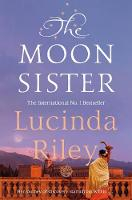 Why you’ll enjoy The Moon Sister: Lucinda Riley is hot worldwide and South Africa is no exception. Like Danielle Steele, her sales in this country are substantial, so The Moon Sister (‘A spellbinding journey from the wilds of Scotland to the olive groves of Spain’) is bound to find a home this Christmas. If anything, the book is bigger than previous ones (739 pages) and it is beyond perfect for beach and holiday reading. This is the fifth epic story in Riley’s smash hit Seven Sisters series, so here you will meet Tiggy, in Inverness. Lucinda cuts to the chase on the first page: Tiggy is being interviewed by Dr Charlie Kinnaird, whose penetrating blue gaze is already upon her. She tingles with a mild electric shock as she shakes his hand. But Lucinda Riley is much more than a very long Mills & Boon. She writes with skill and empathy, lives her own research and I can’t think of anything better to chill out with after the year we’ve lived through.
Why you’ll enjoy The Moon Sister: Lucinda Riley is hot worldwide and South Africa is no exception. Like Danielle Steele, her sales in this country are substantial, so The Moon Sister (‘A spellbinding journey from the wilds of Scotland to the olive groves of Spain’) is bound to find a home this Christmas. If anything, the book is bigger than previous ones (739 pages) and it is beyond perfect for beach and holiday reading. This is the fifth epic story in Riley’s smash hit Seven Sisters series, so here you will meet Tiggy, in Inverness. Lucinda cuts to the chase on the first page: Tiggy is being interviewed by Dr Charlie Kinnaird, whose penetrating blue gaze is already upon her. She tingles with a mild electric shock as she shakes his hand. But Lucinda Riley is much more than a very long Mills & Boon. She writes with skill and empathy, lives her own research and I can’t think of anything better to chill out with after the year we’ve lived through.
The Moon Sister by Lucinda Riley (Macmillan)
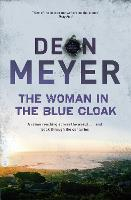 Why you’ll enjoy The Woman in the Blue Cloak: I was lucky enough to break bread with Deon Meyer recently. He was on a publicity trip to Joburg with Pieter-Dirk Uys. Some of the things Meyer told me: Fever, his dystopian novel set in the Karoo, is being developed into a TV series, and international sales have been significant. The makers may want a sequel … It is a book he’s immensely proud of, so if you haven’t read it, go to his website and follow the journey of the main Fever players as they try to rebuild their lives in a shattered world through Meyer’s photographs. He also told me that no-one must think The Woman in a Blue Cloak is a full length novel: it is a novella, written for the most part in the Netherlands, where he was a guest of an organisation devoted to encouraging reading. Benny G has decided to ask Alexa Barnard to marry him, he is broke and he needs to buy an engagement ring (I’m laughing already). Then there’s a body with links to 17th century Holland and England, and … well, Afrikaans readers are already running out of Exclusive Books’ stores with Meyer’s latest full length novel in die taal, Prooi. Whichever you decide to buy, you won’t be disappointed.
Why you’ll enjoy The Woman in the Blue Cloak: I was lucky enough to break bread with Deon Meyer recently. He was on a publicity trip to Joburg with Pieter-Dirk Uys. Some of the things Meyer told me: Fever, his dystopian novel set in the Karoo, is being developed into a TV series, and international sales have been significant. The makers may want a sequel … It is a book he’s immensely proud of, so if you haven’t read it, go to his website and follow the journey of the main Fever players as they try to rebuild their lives in a shattered world through Meyer’s photographs. He also told me that no-one must think The Woman in a Blue Cloak is a full length novel: it is a novella, written for the most part in the Netherlands, where he was a guest of an organisation devoted to encouraging reading. Benny G has decided to ask Alexa Barnard to marry him, he is broke and he needs to buy an engagement ring (I’m laughing already). Then there’s a body with links to 17th century Holland and England, and … well, Afrikaans readers are already running out of Exclusive Books’ stores with Meyer’s latest full length novel in die taal, Prooi. Whichever you decide to buy, you won’t be disappointed.
The Woman in the Blue Cloak by Deon Meyer (Jonathan Ball)
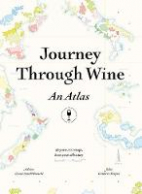 Why you’ll enjoy Journey through Wine: An Atlas: If ever there’s a time for large books it’s right now. Christmas stretches the wallet but sometimes the annual wait is worth it. Wine is changing in South Africa as our climate warms up and rainfall stutters in the Western Cape. To cope with climatic change, South African wine farmers are planting varietals bred over the centuries to cope with less water. So it’s no longer just Sauvignon Blanc or Chenin Blanc, but Grenache, Roussanne, Mouvedre, Nebbiolo, Tempranillo – and many more. What this handsome book does is take us through 8 000 years of wine growing (think Georgia for the oldest wine fields in the world) with the help of simple, explanatory graphics, maps, brief descriptions of the varietals and the country’s history of wine growing. A great gift for experienced wine drinkers and newbies alike and, apart from it’s size, very practical.
Why you’ll enjoy Journey through Wine: An Atlas: If ever there’s a time for large books it’s right now. Christmas stretches the wallet but sometimes the annual wait is worth it. Wine is changing in South Africa as our climate warms up and rainfall stutters in the Western Cape. To cope with climatic change, South African wine farmers are planting varietals bred over the centuries to cope with less water. So it’s no longer just Sauvignon Blanc or Chenin Blanc, but Grenache, Roussanne, Mouvedre, Nebbiolo, Tempranillo – and many more. What this handsome book does is take us through 8 000 years of wine growing (think Georgia for the oldest wine fields in the world) with the help of simple, explanatory graphics, maps, brief descriptions of the varietals and the country’s history of wine growing. A great gift for experienced wine drinkers and newbies alike and, apart from it’s size, very practical.
Journey through Wine: An Atlas Adrien Grant Smith Bianchi & Jules Gaubert-Turpin (Hardie Grant Books)
JENNY CRWYS-WILLIAMS








No comments yet.